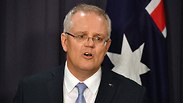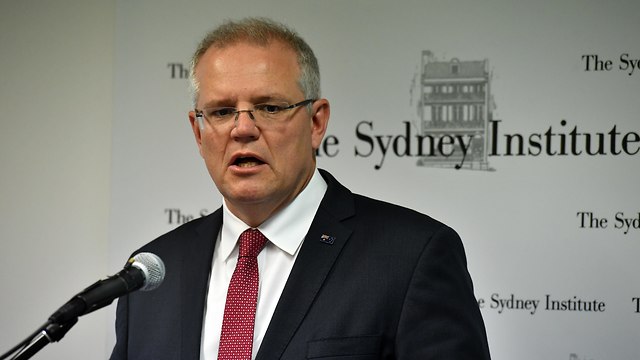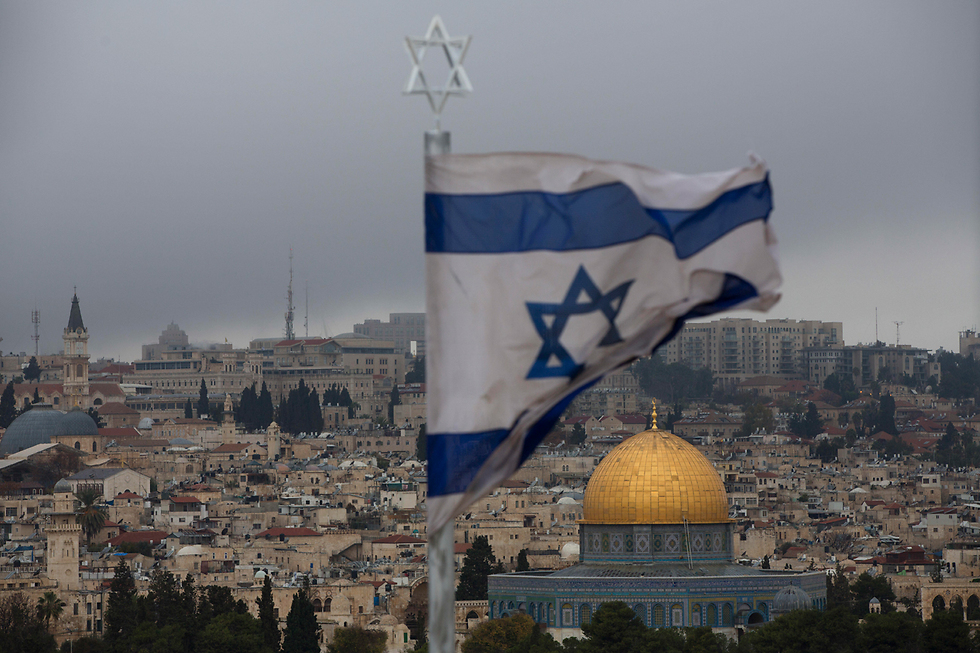

Australia recognizes west Jerusalem as Israel's capital
According to Prime Minister Scott Morrison, Australia won't move its embassy out of Tel Aviv until there's a peace settlement between Israel and Palestinians; Morrison: 'we will recognize east Jerusalem as Palestine's capital only after a settlement has been reached on a two-state solution.'
Australia formally recognises West Jerusalem as Israel's capital, reversing decades of Middle East policy, but will not move its embassy there immediately, Prime Minister Scott Morrison said on Saturday.
"Australia now recognises West Jerusalem, being the seat of the Knesset and many of the institutions of government, is the capital of Israel," Morrison said.
"We look forward to moving our embassy to West Jerusalem when practical," he told reporters in Sydney.
Morrison said in October he was open to shifting Australia's embassy from Tel Aviv. President Donald Trump's decision to move the US embassy to Jerusalem from Tel Aviv in May delighted Israel, infuriated Palestinians and upset the wider Arab world and Western allies.
Morrison's unexpected announcement in October was viewed cynically because it came days before a crucial by-election in an electorate with a strong Jewish representation, a poll his party subsequently lost.
It also drew criticism from Muslim-majority neighbours such as Indonesia and Malaysia, neither of whom formally recognise Israel's right to exist. Arab countries worried that the move would unnecessarily inflame tensions in the Middle East.
Morrison said Australia would not move its embassy to West Jerusalem until the city's final status was determined, but said trade and defence offices would be opened there.
He confirmed Australia's support for a two-state solution with a Palestinian capital in East Jerusalem.
"What we are saying is we've got to move this forward. The rancid stalemate has to be broken," he said.
Opposition leader Bill Shorten said Saturday that the decision to recognize west Jerusalem as Israel's capital but not move the embassy there was a "humiliating backdown" from the October by-election campaign.
"What I'm worried is that Mr. Morrison put his political interest ahead of our national interest," Shorten told reporters.

















